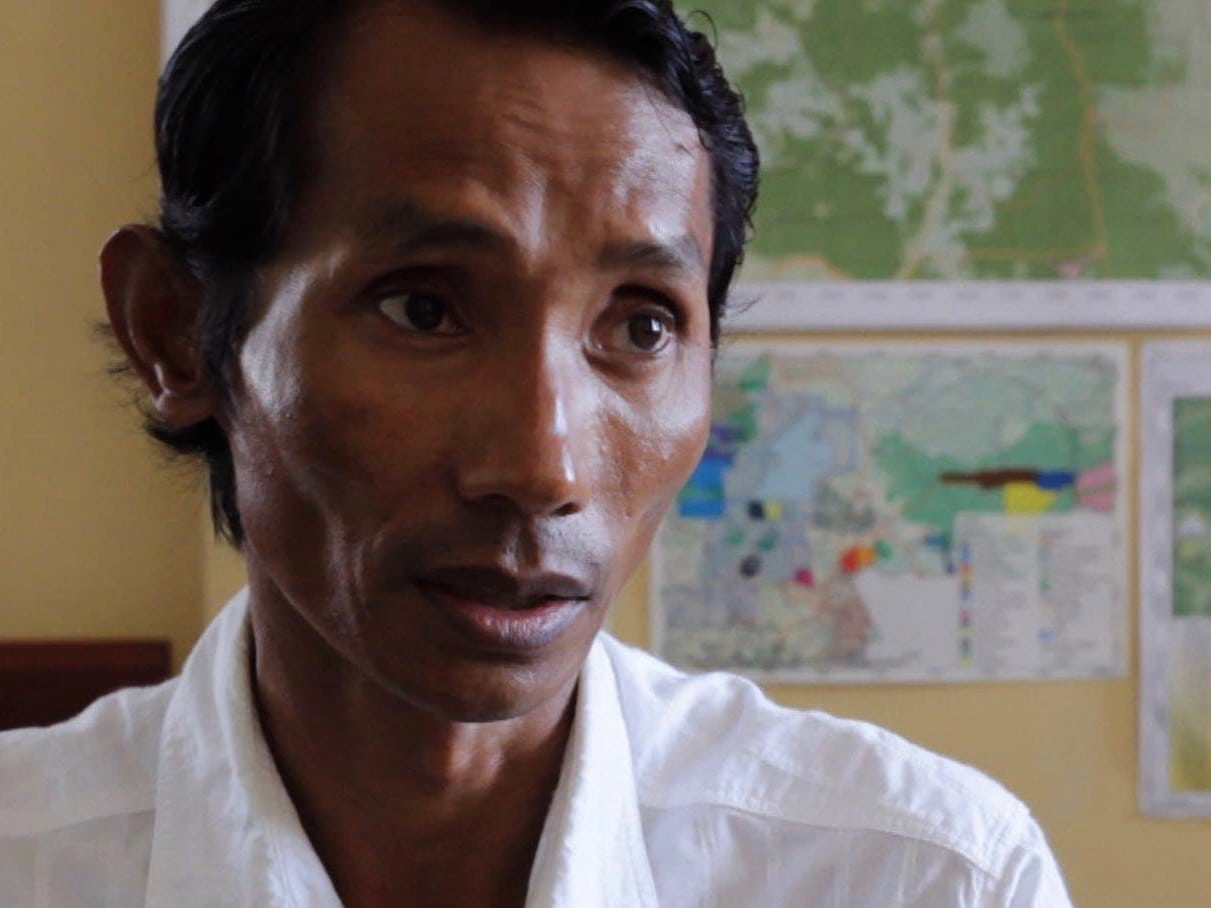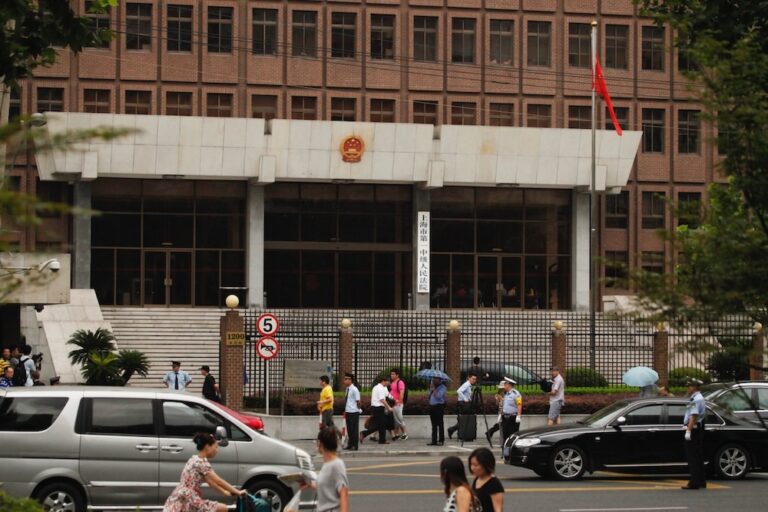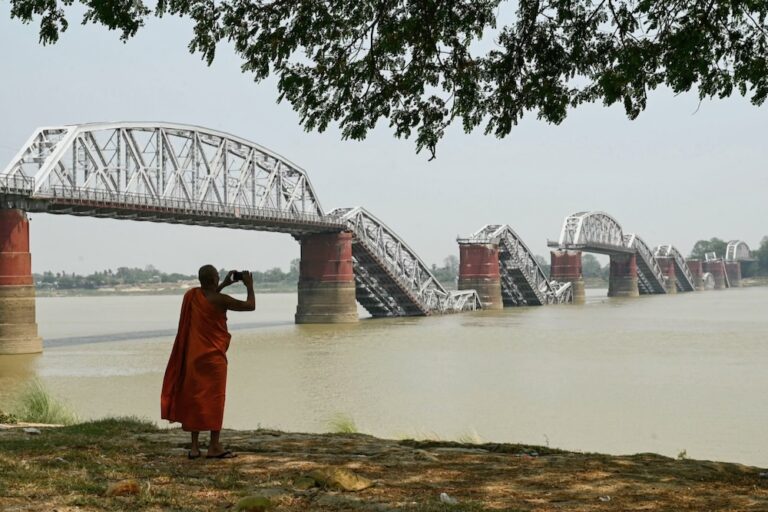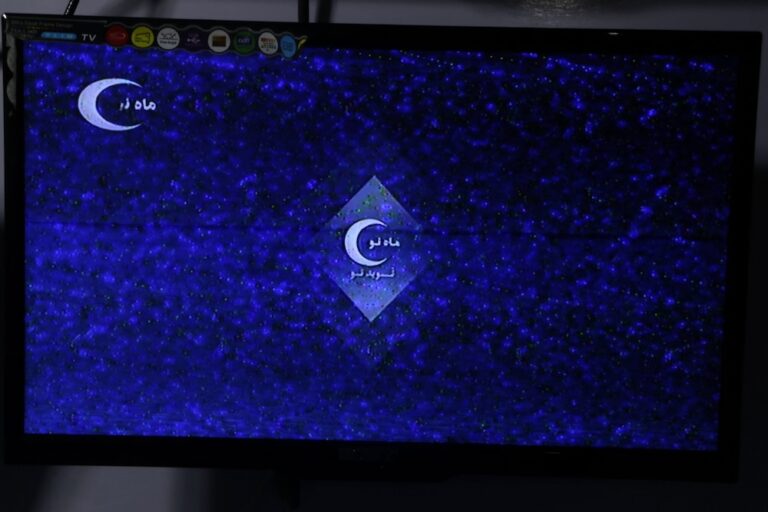Dance performances as well as documentaries featuring rights violations and struggles for justice were targeted by censors across Asia and the Pacific region in May.
Documentaries, performances blocked, banned, redacted
Indonesian police in Yogyakarta cancelled the screening of a political documentary, Pulau Buru Tanah Air Beta, about the seclusion of some 12,000 political prisoners during the anti-communist purge in the 1960s. Events around the purge are still considered a taboo subject, and only recently has the government opened up discussions on the killing of at least half a million Indonesians accused of being communists.
Organised by the Aliansi Jurnalis Independen Yogyajarta (a branch of IFEX member, AJI), the screening was part of a World Press Freedom Day activity. The local police claimed the film advocated communism, a sensitive issue in Indonesia, and ordered the local chapter of the journalists’ group to call off the entire event. Calls were made for thorough investigations into the incident, and questioned raised about why police failed to protect members of the public who turned up to watch the film.
The International Federation of Journalists (IFJ) also issued a statement saying that the actions of those behind the ban have weakened the state of press freedom in the country and threatened the solidarity of the media community and society.
Human rights activist Haris Azahar, from KontraS Indonesia, tweeted that a threat to media freedom was a threat to democracy:
Kalau media dirusak kebebasannya maka tunggulah kehancuran demokrasi. @jokowi
— Haris Azhar (@haris_azhar) May 3, 2016
Australian director Hollie Fifer’s documentary, The Opposition, about a community’s struggle against eviction in Papua New Guinea, had to be redacted prior to its screening at Hot Docs, North America’s largest documentary film festival, on 3 May (World Press Freedom Day).
@OppositionDoc censored by court order. Redacted version screens tonight @hotdocs on #WorldPressFreedomDay #WPFD2016 pic.twitter.com/RZ9qrwzt1a
— The Opposition (@OppositionDoc) May 3, 2016
Scenes including one in which a former politician, Carol Kidu, is seen defending the Paga Hill residents against bulldozers making way for a planned luxury project by the Australian-backed Paga Hill Development Company, had to be redacted after Kidu filed for a court injunction. Kidu had since been hired by the company as a consultant, according to media reports. In a press release, Media Stockade, which produced the documentary, said the court action “raised serious questions on the issue of freedom of speech” and that there were “powerful forces who didn’t want this film to be seen.”
Hot Docs 2016 Review: “The Opposition” (2016) ★★★★★ https://t.co/I7r17YNd0S via @AlakbarovaUlkar @OppositionDoc
— Rebecca Barry (@becbarry) May 5, 2016
Film bans were enforced in Cambodia earlier in April, when the authorities blocked the screening of a documentary about slain environmental activist, Chut Wutty, reportedly for failing to get permission for filming and screening. According to the Cambodia Daily, the crew that shot I am Chut Wutty had begun filming before the activist was killed, and the film featured segments in which he talked about threats against him and the dangerous nature of his work.
Cambodian Center for Human Rights executive director Chak Sopheap said that “rather than supporting these important investigative initiatives, the government is displaying its intent to silence the calls for justice, instead siding with the perpetrators of these terrible crimes.”
The April 2012 killing of Chut Wutty, who was at that time accompanying two journalists covering an illegal logging site in Cardamom Mountains, is an example of the serious levels of impunity for attacks against activists, human rights defenders and the media in the country.
In Pakistan, censors banned two documentary films – Among the Believers and Besieged in Quetta – that were scheduled for screening at a film festival in Islamabad on 29 and 30 April. The Central Board of Film Certification cited anti-state elements in the films, but festival organisers and the directors said the focus on the controversial Lal Masjid and the plight of Quetta’s Hazara community could have been the reasons.
Among the Believers had been screened in over 20 countries and won 12 awards. The Pakistan Press Foundation (PPF) said there was no justification in banning content not prohibited by law, and that the board’s hardline police in defining what was acceptable would negatively impact on the country’s nascent film industry.
Find more information regarding the Hot Docs Film Festival and incidents of film censorship in Indonesia.
China: Censorship without borders
In its monthly report, Freedom House (FH) featured China’s censorship over its neighbors, including South Korea. The report noted that a court in Seoul had issued a last minute cancellation of a series of classical Chinese dance and music shows by the Shen Yun Performing Arts, succumbing to threats by the Chinese embassy to the theater owner. Chinese officials have attempted to prevent performances that showcase experiences of the Falun Gong practitioners in the hands of the authorities, but often unsuccessfully in many countries.
According to FH, the court had flip-flopped in its decision, raising questions about possible intervention by Chinese diplomats. More worrying was how the judicial decision recognised the potential losses the state broadcaster could suffer if China retaliated by ending its broadcasting of Korean dramas. A financial rationale for censorship “is effectively being legitimized by the court of a democratic country, and by a public broadcaster funded by the South Korean government. That sets a dangerous precedent.”
Reporters Without Borders (RSF) reported that in Hong Kong China’s strategy for media and information control has accelerated in the past five years. RSF noted that the censors include shareholders like Jack Ma, editorial leaders (South China Morning Post and Ming Pao) and banks that advertised in the media (Apple Daily), often working with local partners or businessmen with interests in China to support mainland policies. RSF concluded: “By advancing stealthily, China makes it hard to identify all the local actors responsible for the decline in media freedom.” Hong Kong and South Korea ranked 69 and 70, respectively, in RSF’s 2016 press freedom index.
Featured reports from the region mark World Press Freedom Day
IFEX members in the region commemorated WPFD by releasing reports on the state of press freedom in their countries. In Australia, the Media, Entertainment and Arts Alliance focused on the criminalisation of journalism and the impact on the public’s right to know in their 4 May publication.
In Pakistan, PPF noted in their report that while the trend in threats to press freedom continued, there were a number of positive developments, including the lifting of the ban on YouTube, the conviction of the killer of journalist Ayub Khattak and the fresh investigations into the murder of Shah Dahar.
In Indonesia, AJI named the police as the enemy of the press for the fifth time, given the continued threats faced by journalists as well as the use of criminal laws to prosecute the media.
In Nepal, the Freedom Forum’s annual report recorded 59 incidents of press freedom violations across the country over the year, although the number of journalists affected was more than 100. One of the main challenges the country faced followed the April 2015 earthquake, when many media personnel lost family members and properties.
In Mongolia, Globe International Centre honored slain journalist Luntan Bolormaa with their annual Media Freedom Award “For the Truth”, in conjunction with WPFD celebrations. Bolormaa, a well-know investigative journalist, was founder and editor-in-chief of the Mongolian Mining Journal. She was found dead on 21 November 2015. In March this year, civil society groups in the country issued a joint call for the case to be resolved and to determine if Bolormaa was targeted for her work.



